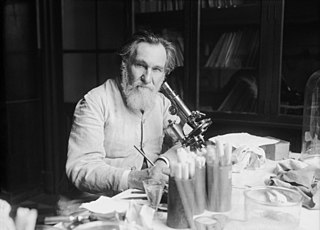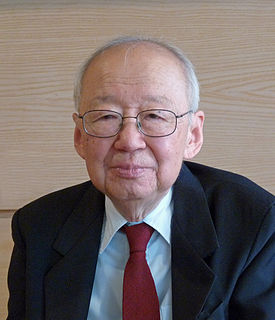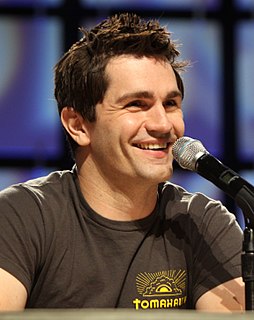A Quote by Elie Metchnikoff
Science, it is said, no doubt has ameliorated the material conditions of human life, but is powerless to solve those moral and philosophical questions that interest cultured people so deeply.
Related Quotes
When physics, chemistry, biology, medicine, contribute to the detection of concrete human woes and to the development of plans for remedying them and relieving the human estate, they become moral; they become part of the apparatus of moral inquiry or science? When the consciousness of science is fully impregnated with the consciousness of human value, the greatest dualism which now weighs humanity down, the split between the material, the mechanical and the scientific and the moral and ideal will be destroyed.
...life is a gift bestowed without anyone asking for it; that the thinking person has a philosophical duty to examine both the nature of life and the conditions it comes with; and that if this person decides to renounce the gift no one asks for, it is the moral and human duty to act on the consequences of that decision.
Science is the only news. When you scan a news portal or magazine, all the human interest stuff is the same old he-said-she-said, the politics and economics the same cyclical dramas, the fashions a pathetic illusion of newness; even the technology is predictable if you know the science behind it. Human nature doesn't change much; science does, and the change accrues, altering the world irreversibly
As a form of moral insurance, at least, literature is much more dependable than a system of beliefs or a philosophical doctrine. Since there are no laws that can protect us from ourselves, no criminal code is capable of preventing a true crime against literature; though we can condemn the material suppression of literature - the persecution of writers, acts of censorship, the burning of books - we are powerless when it comes to its worst violation: that of not reading the books. For that crime, a person pays with his whole life; if the offender is a nation, it pays with its history.
To regard such a positive mental science [psychology] as rising above the sphere of history, and establishing the permanent and unchanging laws of human nature, is therefore possible only to a person who mistakes the transient conditions of a certain historical age for the permanent conditions of human life.
In a sense, every human construction, whether mental or material, is a component in a landscape of fear because it exists in constant chaos. Thus children's fairy tales as well as adult's legends, cosmological myths, and indeed philosophical systems are shelters built by the mind in which human beings can rest, at least temporarily, from the siege of inchoate experience and of doubt.
That's one thing about Dave Filoni. He doesn't call me up unless there's something to think about or there's something that we have to work out on a philosophical or moral or a mythological riddle that we need to solve. Some sort of moral conundrum that we need to place our feet on one side or the other. It's fun when we can ambiguously put those feet into the sand and let the fans discover for itself what it all means.
Quite early on, and certainly since I started writing, I found that philosophical questions occupied me more than any other kind. I hadn't really thought of them as being philosophical questions, but one rapidly comes to an understanding that philosophy's only really about two questions: 'What is true?' and 'What is good?'
Being a philosophical naturalist does not mean that one thinks that science can provide all of the answers. That is scientism and that is wrong. I don't think a billion buckets of science could speak to the problems raised by the Tea Party. Being a philosophical naturalist does not mean that one thinks that the only truths are those of science. I think the claim just made in the last sentence is true but I don't think it is a claim of science. It means that you use science where you can and you respect and try to emulate its standards.





































